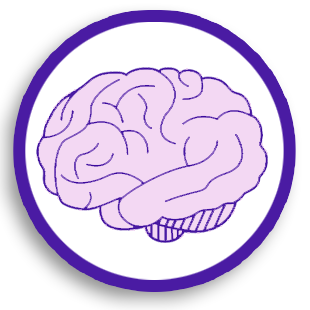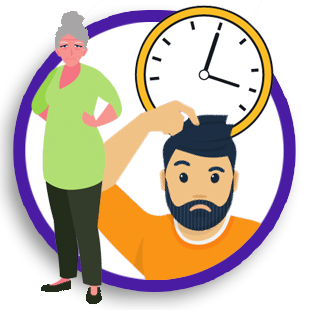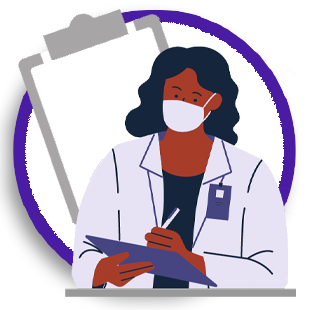Alzheimer's Disease & Related Disorders (ADRD)
Although dementia mostly affects older adults, it is not a part of normal aging.
Dementia is not a specific disease but rather reflects a general term for the impaired ability to remember, think or make decisions that interferes with doing everyday activities. Dementia is a serious disorder that interferes with daily life. Some people with dementia cannot control their emotions and other behaviors and their personality may change.Opens In A New Window
Alzheimer's disease is the most common type of dementia. Alzheimer's diseaseOpens In A New Winis an irreversible progressive brain disease that affects an estimated 6.5 million Americans aged 65 and older. It is estimated there are 280,000 Pennsylvanians currently living with the disease. According to the is an irreversible progressive brain disease that affects an estimated 6.5 million Americans aged 65 and older. It is estimated there are 280,000 Pennsylvanians currently living with the disease, according to the Centers for Disease Control and Prevention (CDC)Opens In A New Window,
a type of dementia, Alzheimer's disease is the seventh leading cause of death among all adults.
Aside from Alzheimer's disease, the most common forms of dementia are:
Early Detection and Diagnosis
The National Institute for Aging has resources available to encourage reaching out to and talking with your doctor if you notice you have more serious memory problems than normal. This information is available in English and Spanish. The earlier that Alzheimer's disease and other dementias are diagnosed, the sooner you can receive information, care and support. Below are resources to help get you started. Learn about brain health, early signs of Alzheimer's disease, what to do when you notice a change and a helpful checklist to go over with your doctor.

Brain Health
Do you want to keep your brain healthy? Discover the steps you can take to manage your health that may lower your risk for memory loss, confusion, and Alzheimer’s disease. Helpful tips are just a click away!


Alzheimer's 10 Early Signs
Memory problems are often one of the early symptoms of Alzheimer's disease or another dementia disorder, but they are not the only one. Symptoms can vary depending on the type of dementia and what areas of the brain are affected. Warning signs of dementia may include the following:
- Memory loss and confusion
- Changes in the ability to speak, understand, and express thoughts and/or words and to write and read
- Repeating questions
- Loss of interest in normal daily activities or events
- Hallucinations, delusions, and paranoia
Early detection and diagnosis of Alzheimer's disease and related disorders (ADRD) is vital. Memory loss that disrupts daily life may be a symptom of Alzheimer's or other dementia. There is a difference between symptoms of ADRD and typical age-related changes. Learn about the 10 early signs of ADRD, similar age-related changes and how to know the difference. If you notice changes, don't delay, schedule an appointment with your doctor.

What To Do When You Notice Changes
Have you started to notice changes in yourself or a loved one? Starting a conversation about ADRD has its challenges. Knowing what to do and say is difficult.
You can use this conversation guide to help you prepare and feel more confident when approaching your concerns.

See Your Doctor
When meeting with your physician about ADRD, a checklist can be a good way to get started.
Find a checklist here to help you prepare for your doctor visit.
Resources
For more information on Alzheimer's disease and related disorders, including local supports, please see the following:
Disclaimer: These are general recommendations only; clinical decisions should be made by the treating physician based on an individual patient's clinical condition.